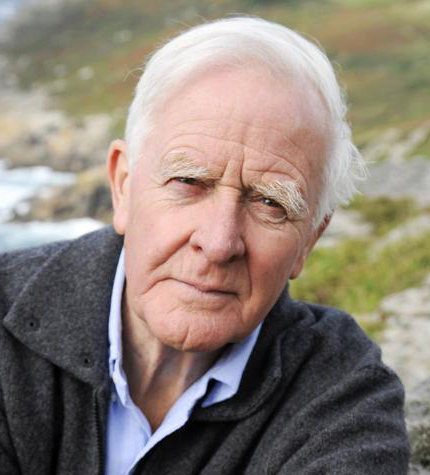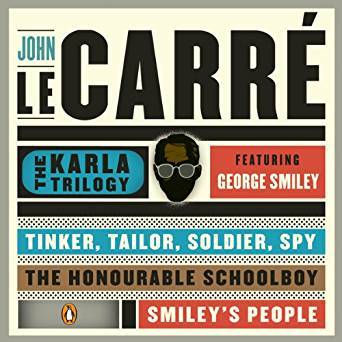
JOHN LE CARRÉ & THE PINNACLE OF SPY FICTION
by Steele Curry
On December 12, 2020, David Cornwell, better known by his penname John le Carré, died, having authored 25 novels and one memoir. He started his career as a spy for Britain’s MI5 and then MI6 before his first novel, Call for the Dead, was published in 1961, introducing his readers to the spymaster George Smiley, the central character in five of le Carré’s novels and a supporting one in four.
While most of le Carré’s novels featured the world of espionage, they all brilliantly portrayed the themes of moral ambiguity, treachery, betrayal and institutional corruption. A strong element of the author’s popularity, however, was based on the quality and style of his writing highlighted by complicated plotting, descriptive characterizations, the way he conveyed the mood and atmosphere of his settings, and a sophisticated treatment of the frailty of personal relationships.
For le Carré, perhaps unconsciously Smiley served as a metaphor for Britain’s decline as a world power during the Cold War – a lonely, steadfast, dowdy, vulnerable being with streaks of brilliance. Obviously, the opposite of Ian Fleming’s James Bond.
Since the early 1960s, I’ve obsessively devoured le Carré’s novels as soon as they were published. Some I’ve gone back and read a second time. I believe that le Carré’s finest novels are his The Quest for Karla trilogy – Tinker, Tailor, Soldier, Spy (1974)*, The Honourable Schoolboy (1977) and Smiley’s People (1980) – that chronicled Smiley’s battle with the Russian spymaster Karla at the height of the Cold War. It is likely that these three books will stand the test of time as the pinnacle of espionage-related fiction by a British author.

Of all of le Carré’s novels, I disliked A Perfect Spy (1986), a loosely fictionalized account of his sociopath, drunk, duplicitous, loser of a father. Plowing through 463 pages devoted to a total cad is just not my idea of reading pleasure. Tellingly, le Carré regarded this as his best novel. In the end, the author paid for his father’s funeral but didn’t attend it.
For readers unfamiliar with le Carré, after The Quest for Karla Trilogy I recommend you read The Spy Who Came In From the Cold (1963), The Russia House (1989), The Little Drummer Girl (1983) and Our Kind of Traitor (2010) but pass on Call for the Dead (1961), A Murder of Quality (1962), The Looking Glass War (1965), A Small Town in Germany (1968), The Naive and Sentimental Lover (1971), The Tailor of Panama (1996), A Delicate Truth (2013), A Legacy of Spies (2017) and Agent Running in the Field (2019). The other books are good entertainment but not that notable.
Unlike Len Deighton, le Carré didn’t know when to quit writing. His weakest novels were his later ones when he had become embittered in his outspoken criticism of the U. S., the British political establishment and the war on terror.
* The years given in parenthesis are for the U.K. date of publication.
